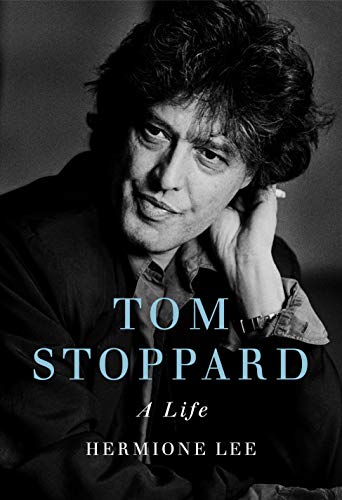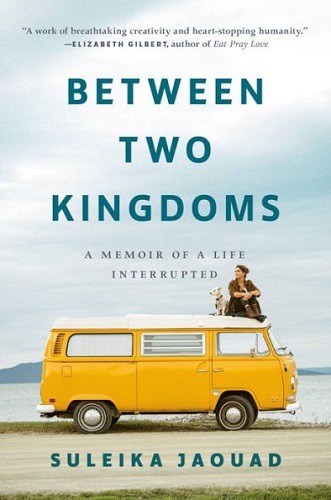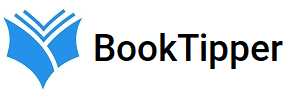
WE OWN THIS CITY
by Justin Fenton
The astonishing true story of “one of the most startling police corruption scandals in a generation” (The New York Times), from the Pulitzer Prize–nominated reporter who exposed a gang of criminal cops and their yearslong plunder of an American city
“A work of journalism that not only chronicles the rise and fall of a corrupt police unit but can stand as the inevitable coda to the half-century of disaster that is the American drug war.”—David Simon, author of Homicide, co-author of The Corner, and creator of The Wire
Baltimore, 2015. Riots are erupting across the city as citizens demand justice for Freddie Gray, a twenty-five-year-old Black man who has died under suspicious circumstances while in police custody. Drug and violent crime are surging, and Baltimore will reach its highest murder count in more than two decades: 342 homicides in a single year, in a city of just 600,000 people. Facing pressure from the mayor’s office—as well as a federal investigation of the department over Gray’s death—Baltimore police commanders turn to a rank-and-file hero, Sergeant Wayne Jenkins, and his elite plainclothes unit, the Gun Trace Task Force, to help get guns and drugs off the street.
But behind these new efforts, a criminal conspiracy of unprecedented scale was unfolding within the police department. Entrusted with fixing the city’s drug and gun crisis, Jenkins chose to exploit it instead. With other members of the empowered Gun Trace Task Force, Jenkins stole from Baltimore’s citizens—skimming from drug busts, pocketing thousands in cash found in private homes, and planting fake evidence to throw Internal Affairs off their scent. Their brazen crime spree would go unchecked for years. The result was countless wrongful convictions, the death of an innocent civilian, and the mysterious death of one cop who was shot in the head, killed just a day before he was scheduled to testify against the unit.
In this urgent book, award-winning investigative journalist Justin Fenton distills hundreds of interviews, thousands of court documents, and countless hours of video footage to present the definitive account of the entire scandal. The result is an astounding, riveting feat of reportage about a rogue police unit, the city they held hostage, and the ongoing struggle between American law enforcement and the communities they are charged to serve.

TOM STOPPARD: A LIFE
by Hermione Lee
One of our most brilliant biographers takes on one of our greatest living playwrights, drawing on a wealth of new materials and on many conversations with him
One of our most brilliant biographers takes on one of our greatest living playwrights, drawing on a wealth of new materials and on many conversations with him
Tom Stoppard is a towering and beloved literary figure. Known for his dizzying narrative inventiveness and intense attention to language, he deftly deploys art, science, history, politics, and philosophy in works that span a remarkable spectrum of literary genres: theater, radio, film, TV, journalism, and fiction. His most acclaimed creations–Rosencrantz and Guildenstern are Dead, The Real Thing, Arcadia, The Coast of Utopia, Shakespeare in Love–remain as fresh and moving as when they entranced their first audiences.
Born in Czechoslovakia, Stoppard escaped the Nazis with his mother and spent his early years in Singapore and India before arriving in England at age eight. Skipping university, he embarked on a brilliant career, becoming close friends over the years with an astonishing array of writers, actors, directors, musicians, and political figures, from Peter O’Toole, Harold Pinter, and Stephen Spielberg to Mick Jagger and Václav Havel. Having long described himself as a “bounced Czech,” Stoppard only learned late in life of his mother’s Jewish family and of the relatives he lost to the Holocaust.
Lee’s absorbing biography seamlessly weaves Stoppard’s life and work together into a vivid, insightful, and always riveting portrait of a remarkable man.

HOT SEAT
by Jeff Immelt
A memoir of successful leadership in times of crisis: the former CEO of General Electric, named one of the “World’s Best CEOs” three times by Barron’s, shares the hard-won lessons he learned from his experience leading GE immediately after 9/11, through the economic devastation of the 2008–09 financial crisis, and into an increasingly globalized world.
In September 2001, Jeff Immelt replaced the most famous CEO in history, Jack Welch, at the helm of General Electric. Less than a week into his tenure, the 9/11 terrorist attacks shook the nation, and the company, to its core. GE was connected to nearly every part of the tragedy—GE-financed planes powered by GE-manufactured engines had just destroyed real estate that was insured by GE-issued policies. Facing an unprecedented situation, Immelt knew his response would set the tone for businesses everywhere that looked to GE—one of America’s biggest and most-heralded corporations—for direction. No pressure.
Over the next sixteen years, Immelt would lead GE through many more dire moments, from the 2008–09 Global Financial Crisis to the 2011 meltdown of Fukushima’s nuclear reactors, which were designed by GE. But Immelt’s biggest challenge was inherited: Welch had handed over a company that had great people, but was short on innovation. Immelt set out to change GE’s focus by making it more global, more rooted in technology, and more diverse. But the stock market rarely rewarded his efforts, and GE struggled.
In Hot Seat, Immelt offers a rigorous, candid interrogation of himself and his tenure, detailing for the first time his proudest moments and his biggest mistakes. The most crucial component of leadership, he writes, is the willingness to make decisions. But knowing what to do is a thousand times easier than knowing when to do it. Perseverance, combined with clear communication, can ensure progress, if not perfection, he says. That won’t protect any CEO from second-guessing, but Immelt explains how he’s pushed through even the most withering criticism: by staying focused on his team and the goals they tried to achieve. As the business world continues to be rocked by stunning economic upheaval, Hot Seat is an urgently needed, and unusually raw, source of authoritative guidance for decisive leadership in uncertain times.

THE YORK PATROL
by James Carl Nelson
“Exceptional military history worthy of its heroic subject.” —Matthew J. Davenport
In the vein of Band of Brothers and American Sniper, a riveting history of Alvin York, the World War I legend who killed two dozen Germans and captured more than 100, detailing York’s heroics yet also restoring the unsung heroes of his patrol to their rightful place in history—from renowned World War I historian James Carl Nelson.
October 8, 1918 was a banner day for heroes of the American Expeditionary Force. Thirteen men performed heroic deeds that would earn them Medals of Honor. Of this group, one man emerged as the single greatest American hero of the Great War: Alvin Cullum York. A poor young farmer from Tennessee, Sergeant York was said to have single-handedly killed two dozen Germans and captured another 132 of the enemy plus thirty-five machine guns before noon on that fateful Day of Valor.
York would become an American legend, celebrated in magazines, books, and a blockbuster biopic starring Gary Cooper. The film, Sergeant York, told of a hell-raiser from backwoods Tennessee who had a come-to-Jesus moment, then wrestled with his newfound Christian convictions to become one of the greatest heroes the U.S. Army had ever known. It was a great story—but not the whole story.
In this absorbing history, James Carl Nelson unspools, for the first time, the complete story of Alvin York and the events that occurred in the Argonne Forest on that day. Nelson gives voice, in particular, to the sixteen “others” who fought beside York. Hailing from big cities and small towns across the U.S. as well as several foreign countries, these soldiers included a patrician Connecticut farmer whose lineage could be traced back to the American Revolution, a poor runaway from Massachusetts who joined the Army under a false name, and a Polish immigrant who enlisted in hopes of expediting his citizenship. The York Patrol shines a long overdue spotlight on these men and York, and pays homage to their bravery and sacrifice.
Illustrated with 25 black-and-white images, The York Patrol is a rousing tale of courage, tragedy, and heroism.

THE ENLIGHTENMENT
by Ritchie Robertson
A magisterial history that recasts the Enlightenment as a period not solely consumed with rationale and reason, but rather as a pursuit of practical means to achieve greater human happiness.
One of the formative periods of European and world history, the Enlightenment is the fountainhead of modern secular Western values: religious tolerance, freedom of thought, speech and the press, of rationality and evidence-based argument. Yet why, over three hundred years after it began, is the Enlightenment so profoundly misunderstood as controversial, the expression of soulless calculation? The answer may be that, to an extraordinary extent, we have accepted the account of the Enlightenment given by its conservative enemies: that enlightenment necessarily implied hostility to religion or support for an unfettered free market, or that this was “the best of all possible worlds”. Ritchie Robertson goes back into the “long eighteenth century,” from approximately 1680 to 1790, to reveal what this much-debated period was really about.
Robertson returns to the era’s original texts to show that above all, the Enlightenment was really about increasing human happiness – in this world rather than the next – by promoting scientific inquiry and reasoned argument. In so doing Robertson chronicles the campaigns mounted by some Enlightened figures against evils like capital punishment, judicial torture, serfdom and witchcraft trials, featuring the experiences of major figures like Voltaire and Diderot alongside ordinary people who lived through this extraordinary moment.
In answering the question ‘What is Enlightenment?’ in 1784, Kant famously urged men and women above all to “have the courage to use your own intellect”. Robertson shows how the thinkers of the Enlightenment did just that, seeking a well-rounded understanding of humanity in which reason was balanced with emotion and sensibility. Drawing on philosophy, theology, historiography and literature across the major western European languages, The Enlightenment is a master-class in big picture history about the foundational epoch of modern times.
Still Hot in Non-Fiction & Biography

BETWEEN TWO KINGDOMS
by Suleika Jaouad
NEW YORK TIMES BESTSELLER • A searing, deeply moving memoir of illness and recovery that traces one young woman’s journey from diagnosis to remission and, ultimately, a road trip of healing and self-discovery.
“A work of breathtaking creativity.”—Elizabeth Gilbert, author of Eat Pray Love
“Elegant and heartbreaking.”—Siddhartha Mukherjee, author of The Emperor of All Maladies
“Mended parts I thought were forever disintegrated.”—Kiese Laymon, author of Heavy
“A propulsive, soulful story of mourning and gratitude.”—Tara Westover, author of Educated
In the summer after graduating from college, Suleika Jaouad was preparing, as they say in commencement speeches, to enter “the real world.” She had fallen in love and moved to Paris to pursue her dream of becoming a war correspondent. The real world she found, however, would take her into a very different kind of conflict zone.
It started with an itch—first on her feet, then up her legs, like a thousand invisible mosquito bites. Next came the exhaustion, and the six-hour naps that only deepened her fatigue. Then a trip to the doctor and, a few weeks shy of her twenty-third birthday, a diagnosis: leukemia, with a 35 percent chance of survival. Just like that, the life she had imagined for herself had gone up in flames. By the time Jaouad flew home to New York, she had lost her job, her apartment, and her independence. She would spend much of the next four years in a hospital bed, fighting for her life and chronicling the saga in a column for The New York Times.
When Jaouad finally walked out of the cancer ward—after countless rounds of chemo, a clinical trial, and a bone marrow transplant—she was, according to the doctors, cured. But as she would soon learn, a cure is not where the work of healing ends; it’s where it begins. She had spent the past 1,500 days in desperate pursuit of one goal—to survive. And now that she’d done so, she realized that she had no idea how to live.
How would she reenter the world and live again? How could she reclaim what had been lost? Jaouad embarked—with her new best friend, Oscar, a scruffy terrier mutt—on a 100-day, 15,000-mile road trip across the country. She set out to meet some of the strangers who had written to her during her years in the hospital: a teenage girl in Florida also recovering from cancer; a teacher in California grieving the death of her son; a death-row inmate in Texas who’d spent his own years confined to a room. What she learned on this trip is that the divide between sick and well is porous, that the vast majority of us will travel back and forth between these realms throughout our lives. Between Two Kingdoms is a profound chronicle of survivorship and a fierce, tender, and inspiring exploration of what it means to begin again.

BREATH
by James Nestor
A New York Times Bestseller
A Washington Post Notable Nonfiction Book of 2020
Named a Best Book of 2020 by NPR
“A fascinating scientific, cultural, spiritual and evolutionary history of the way humans breathe—and how we’ve all been doing it wrong for a long, long time.” —Elizabeth Gilbert, author of Big Magic and Eat Pray Love
No matter what you eat, how much you exercise, how skinny or young or wise you are, none of it matters if you’re not breathing properly.
There is nothing more essential to our health and well-being than breathing: take air in, let it out, repeat twenty-five thousand times a day. Yet, as a species, humans have lost the ability to breathe correctly, with grave consequences.
Journalist James Nestor travels the world to figure out what went wrong and how to fix it. The answers aren’t found in pulmonology labs, as we might expect, but in the muddy digs of ancient burial sites, secret Soviet facilities, New Jersey choir schools, and the smoggy streets of São Paulo. Nestor tracks down men and women exploring the hidden science behind ancient breathing practices like Pranayama, Sudarshan Kriya, and Tummo and teams up with pulmonary tinkerers to scientifically test long-held beliefs about how we breathe.
Modern research is showing us that making even slight adjustments to the way we inhale and exhale can jump-start athletic performance; rejuvenate internal organs; halt snoring, asthma, and autoimmune disease; and even straighten scoliotic spines. None of this should be possible, and yet it is.
Drawing on thousands of years of medical texts and recent cutting-edge studies in pulmonology, psychology, biochemistry, and human physiology, Breath turns the conventional wisdom of what we thought we knew about our most basic biological function on its head. You will never breathe the same again.

THIS IS HOW THEY TELL ME THE WORLD ENDS
by Nicole Perlroth
“Part John le Carré and more parts Michael Crichton . . . spellbinding.” –The New Yorker
From The New York Times cybersecurity reporter Nicole Perlroth, the untold story of the cyberweapons market-the most secretive, invisible, government-backed market on earth-and a terrifying first look at a new kind of global warfare.
Zero day: a software bug that allows a hacker to break into your devices and move around undetected. One of the most coveted tools in a spy’s arsenal, a zero day has the power to silently spy on your iPhone, dismantle the safety controls at a chemical plant, alter an election, and shut down the electric grid (just ask Ukraine).
For decades, under cover of classification levels and non-disclosure agreements, the United States government became the world’s dominant hoarder of zero days. U.S. government agents paid top dollar-first thousands, and later millions of dollars- to hackers willing to sell their lock-picking code and their silence.
Then the United States lost control of its hoard and the market.
Now those zero days are in the hands of hostile nations and mercenaries who do not care if your vote goes missing, your clean water is contaminated, or our nuclear plants melt down.
Filled with spies, hackers, arms dealers, and a few unsung heroes, written like a thriller and a reference, This Is How They Tell Me the World Ends is an astonishing feat of journalism. Based on years of reporting and hundreds of interviews, The New York Times reporter Nicole Perlroth lifts the curtain on a market in shadow, revealing the urgent threat faced by us all if we cannot bring the global cyber arms race to heel.
